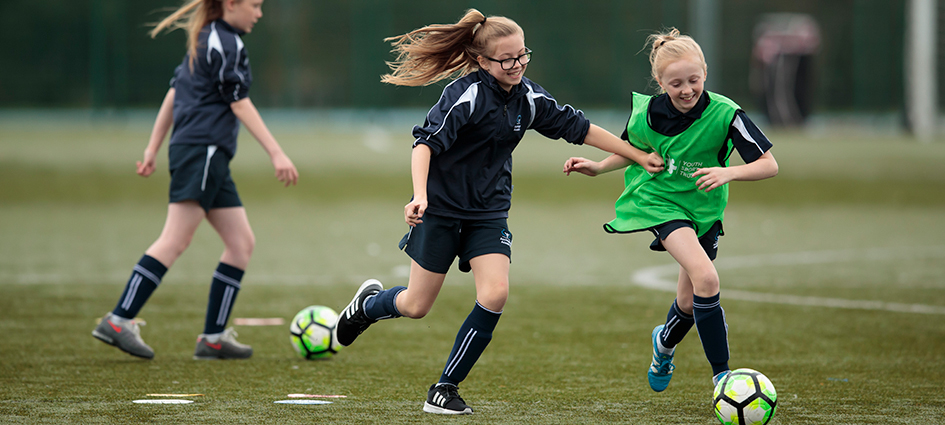
Youth Development Phase and the social corner
- The Boot Room
- 15 September 2020
When coaching in the Youth Development Phase, it's crucial to develop youngsters as people, as well as players, and to develop life skills as well as football skills.
In essence, the social corner is about helping the young people you coach to become better skilled in their interactions and relationships with others, on and off the pitch.
As a coach, you have an important role to play. Boys and girls in this age phase are at an impressionable, vulnerable age and whilst the influence of their peer groups become stronger, it’s important not to underestimate the role a coach may have in a young person's life.
In the video below, England men's manager Gareth Southgate, discusses the importance of positive role models.
As a coach, creating a safe, positive environment is a great starting point for enabling young people to develop their social skills, express themselves and play with freedom. A positive environment consists of clear expectations, regular routines and consistent positive behaviours from you as a coach.
Once a safe, positive environment is established, coaches can help players work on particular social skills, as outlined here by The FA Advanced Youth Award's social lead, Merfyn Roberts.
In particular, the Youth Development Phase DNA stresses the importance of aiming to develop players who
- behave positively – apply appropriate focus and meet the collective expectations
- are good learners – engage in learning to develop themselves and their game
- are good team players – understand their own and others' roles within the team
- manage relationships well – work effectively with others both on and off the pitch
- show independence – display traits of independence in a positive and constructive way.
However, coaching players of these ages isn’t always easy. If you coach in the Youth Development Phase, it will be challenging. Linked to the physical and psychological corners, these changing years are full of disruption and discovery. You need to adapt your coaching to meet individual needs and maximise this opportunity by reinforcing positive behaviours in the players.
Watch Merfyn Roberts advise on how to deal with some of these challenges, in the video below.
There are some great ways to maximise the opportunities for players to behave in a positive and desired way:
- Build positive relationships with players.
- Display calm, consistent behaviours.
- Use game-related practices with high ball-rolling time.
- Plan effectively.
Developing youngsters socially will positively impact them as players in how they relate to their teammates, and how they better connect and work together in a game. Ultimately, success is developing people and players with individuality and self-expression who can operate within – and contribute to – a collective team ethos, on and off the pitch.
To find out more, explore our Youth Development Phase DNA playlist.


